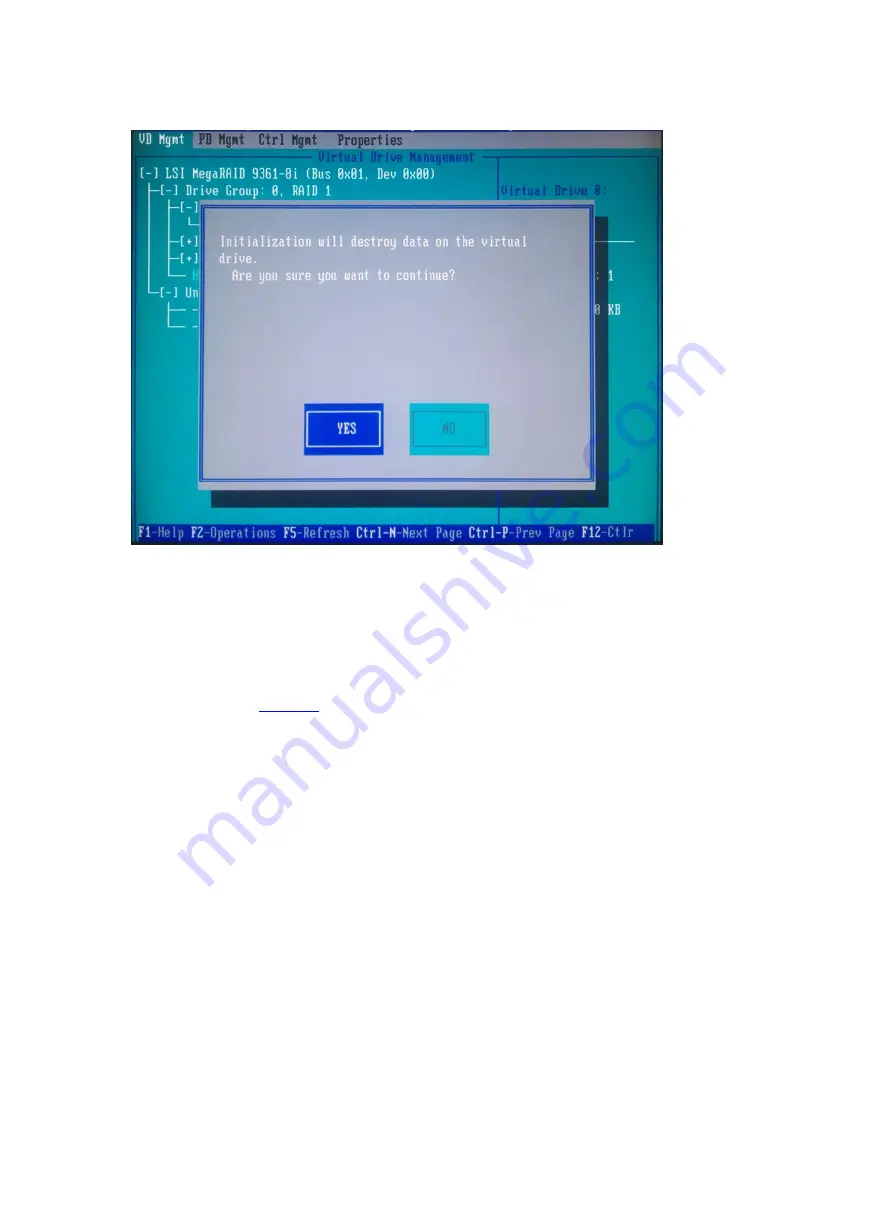
3-75
图
3-126
Confirming the initialization
6. Erasing Data from the Disk
This function is used to delete internal data of the disk, including erasing physical disk data and
logical disk data.
•
Erasing data from a physical disk
(1) As
shown
, select the physical disk for which the data will be erased on the
PD
Mgmt
screen, and press
F2
.
















































